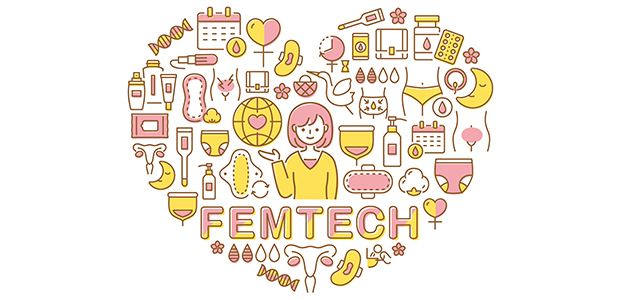
From Taboos to Tech: navigating cultural shifts in Southeast Asia's femtech landscape
FemTech has seen an astronomical rise in recent years. Last year alone, Forbes and Dealroom reported that 2023 saw $1.14 billion raised across 120 ‘FemTech’ deals. Meanwhile, the FemTech Landscape Report estimates that by the end of 2027, the industry as a whole will be worth over $1 trillion. What does this tell us? That the opportunities for startups and investors alike is staggering.
Whilst these stats refer to the global opportunity that femtech offers, much of this relates to specific regions and countries. With healthcare policies, cultural norms, and government initiatives varying from country to country, the playing field for femtech isn’t equal the world over. The US and EU may be leading the investment charge, but there are hubs around the world that are seizing the opportunity to drive the overarching femtech mission: to improve the lives of women globally.
Southeast Asia (SEA) is a prime example. As of December 2023, there were 100 femtech startups in the region in total, across Indonesia, Malaysia, Philippines, Singapore, Thailand and Vietnam. Their solutions range from menstrual health, maternity care, hormonal health, fertility and sexual health, among others. More recently, in partnership with Milieu Insight, the femtech Association of Asia released its 2024 Insights report, which revealed how femtech expansion continues in the region. It found that the current consumer market value of femtech in SEA sits at $6 billion, with an estimated 5% increase in spending in the near future. Far from being an outlier, as the global femtech ecosystem continues to grow, it’s clear that SEA is a frontrunner in this race.
That said, there are significant challenges faced in the region that the US and EU for example don’t contend with to the same level. While the femtech market is estimated to grow and the large female population in Southeast Asia implies an enormous serviceable market for femtech startups and investors, uptake is still fairly low compared to other regions. Research by Statistia and Milieu in 2023 found that only 23% of women in Singapore use femtech solutions, compared to 40% in Malaysia, 35% in Indonesia, 44% in the Philippines, and 41% in Thailand.
This raises the plain, yet vast question: why? Several factors are at play. Contrary to countries like the US and UK where discussions around sexual health, menopause, fertility and menstruation are becoming increasingly commonplace, deep-rooted cultural traditions in Southeast Asia still keep many women’s voices (and needs) quiet. The limited research focused specifically on women's health, particularly in areas like perimenopause, has led to fragmented and often conflicting information. Our own research indicates that 51.7% of women learn about perimenopause through friends and family, whilst 43.4% turn to social media and the internet, which reflects their proactive approach in the absence of centralised, reliable information.
It’s evident that women need solutions and support, and that the conversation is well under way in private circles. Cultural taboos are shifting but lack of reliable sources of information around women’s health risk many women leaving health conditions unresolved. The rise of femtech startups in Southeast Asia is not only a key driver of economic growth in the region, with the opportunity to generate $3 for every $1 invested according to the World Economic Forum. Equally, it is the catalyst for much-needed reassessment of education, research gaps, and cultural stigmatisation that enshrouds women’s health.
For femtech startups in Southeast Asia, this adds another layer to our work. Not only are we faced with the commercial task of creating viable growth strategies to support our business model, fund research and attract investment; we bear the additional weight of creating awareness and creating educational programs. Rather than seeing this as a challenge, however, this step in our journey is incredibly liberating. It speaks to the heart of the femtech mission, which is in very simple terms, to improve women’s health from the roots for the consumer and by the consumer itself. We have a responsibility to ensure that the solutions and technology that are created actually serve users in a tangible way. We have the opportunity to share the wisdom we accrue to inspire future generations to carry the torch further. We have the means to flourish and position the region as a leader in tech. And, like femtech startups around the world, we have the heart, the solutions, and support to make this lasting change happen.

